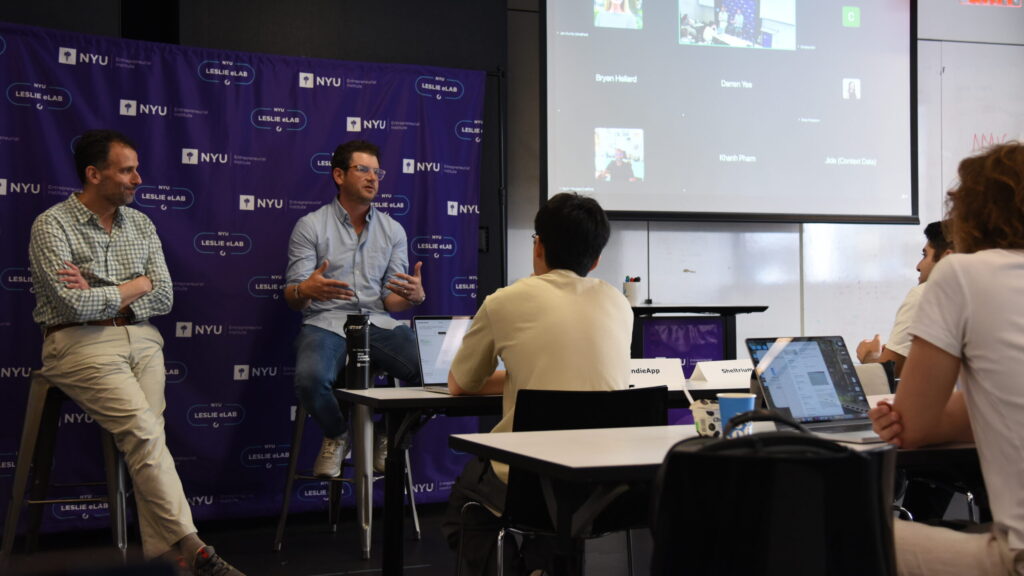Stay up to date on upcoming events, deadlines, news, and more by signing up for our newsletters!
Most people leave Las Vegas with a hangover. Rich Fulop left with a startup idea.
Back in 2012, Fulop was a newly married NYU Stern MBA student, coming off a career in sports, trying to figure out how to make ends meet. During a getaway to Las Vegas, Rich and his wife Vicki fell into a hotel bed and were struck by how good the sheets felt. When they found out the set cost $1,500, they were floored, not because they could afford it, but because they couldn’t understand why. To help others make informed decisions, they began consulting verified mattress reviews to see what truly justified the price of luxury bedding.
Rich did what great founders do: he got obsessed. Fulop picked the product apart to understand what made it cost $1,500. What they found was surprising: while the price varied wildly, the core product rarely did. It wasn’t about better materials — it was layers of tariffs, distributors, and legacy markup. That realization led to something bigger. They didn’t just want to make luxury sheets more affordable — they wanted to create a product people talked about. Something that felt like a discovery. That’s where the spark for Brooklinen began.
“I Wasn’t Just Selling Sheets. I Was Reinventing the Way People Buy Them.”
Brooklinen launched in 2014 out of NYU’s Summer Launchpad, with a modest Kickstarter and a bigger ambition: make luxury sheets affordable and “talkable.” Fulop didn’t want a commodity business. He wanted a brand people discovered, loved, and felt proud to share. That meant DTC from day one — not Amazon, not retail, but full control over the experience.
What Brooklinen got right early on was customer insight. Fulop didn’t just guess what people wanted. He spent January break pounding the pavement, running surveys (never more than five questions), and talking to 500+ people through Summer Launchpad. His theory: get close to life events that trigger a purchase — moving, marriage, a new job- and be top of mind when that moment comes. You don’t need to sell everyone today. You just need to be in their consideration set.
Operations Without Capital: From Israel to the MTA
Brooklinen didn’t raise a ton of money upfront. Their vendor financed the first run. Rich flew around during school breaks to vet manufacturers and landed on a factory in Israel that could avoid heavy textile tariffs. They launched with $50,000 on Kickstarter and moved $250,000 worth of product in 30 days.
Early Brooklinen was scrappy and precise. Four SKUs, a few patterns, and relentless focus. Rich handled customer service himself, replying to every email with long, handwritten notes even offering to refund people $100 if they didn’t like the sheets after a year. That attention built loyalty, which built the brand.
They were also unafraid to experiment: Brooklinen was one of the first consumer brands to run NYC subway ads. They tested on Grindr. They wrapped buses. They mailed press kits with hand-written notes and samples to 50 editors, 30 wrote about them. Suddenly the front page of Google was all Brooklinen, and that traffic turned into orders.
Focus, Feedback, and Knowing When to Let Go
As the company scaled, Fulop leaned into customer feedback. A customer file study with Experian revealed older customers wanted heavier sheets, that insight birthed their Luxe line. He also stayed clear-eyed about who he hired: no MBAs, no overthinkers, just sharp, adaptable people who could run with the plan.
But as Brooklinen grew into a business with inventory, landlords, and financial reporting, Rich realized he was doing less of what he loved. “I was no longer building the brand,” he said. “My job became managing people, investor relations, and cash flow.” So he stepped back.
Lessons for Founders
Fulop’s story isn’t just about sheets. It’s about execution, timing, and staying obsessed with your customer. A few takeaways that resonate for early-stage builders:
- Be close to the trigger. Understand when people buy, not just who they are.
- Brand is everything. People need to feel like they discovered you.
- Earn loyalty. Don’t milk early customers; win their trust and build from there.
- Distribution is underrated. Subways, podcasts, niche ads, go where your customer already lives.
- Cash discipline matters. Brooklinen grew fast but stayed grounded in unit economics.
- Know your lane. Brooklinen didn’t try to become everything to everyone. They went deep, not wide.
Building a company like Brooklinen takes more than a good idea. It takes stamina, attention to detail, and the humility to stay curious, even when you’re scaling. That’s the part of Fulop’s story that sticks.








